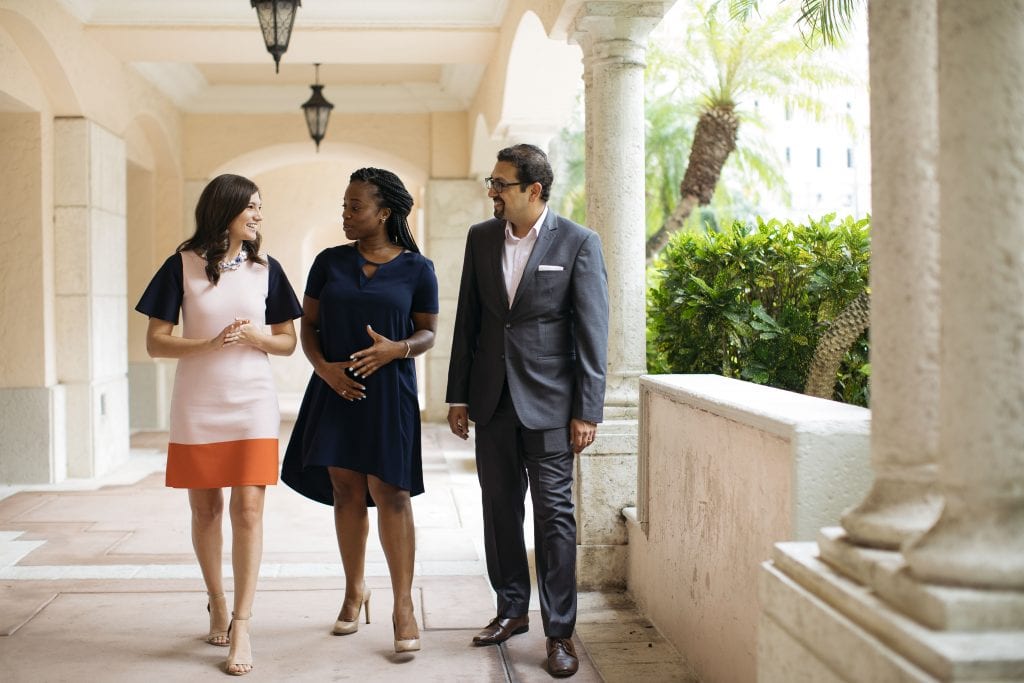In our latest installment of the MetroMBA “5 Questions” series, we speak with Dustin Sanders, the Director of Admissions, Executive MBA at Northwestern University-Kellogg School of Management.
1) How does the Kellogg Executive MBA program differentiate from other offerings at Kellogg and other programs in the Graduate Management Education space?
| At Kellogg, our programs are defined by where the student is on his or her leadership journey. Executive MBA students have the benefit of bringing rich experience into the classroom: The average level of work experience for a student in Kellogg’s Executive MBA program is nearly three times that of the average full-time program. This allows for classroom discussion to center on current management challenges, with participants drawing on a deeper understanding of success and failure over a longer span of leadership. The Kellogg Executive MBA program is a top-ranked program with a clear return on investment. A recent survey of Kellogg EMBA alumni from 2009-18 showed that alumni were able to double their pre-MBA compensation within 3-5 years of graduation, and 88% of EMBA alumni say Kellogg has had a high or very high impact on their professional growth. This growth happens in real-time for our students the moment they begin their program. We believe that for the level of experienced student we attract, the course choice, length, location, context and intensity should match today’s ever-changing world. We offer an array of electives available exclusively to Executive MBA students: 52 electives in 14 countries and across 5 continents. We promote and encourage international, multi-cultural perspectives. We believe deeply in collaboration and diverse teams as a means to drive higher success in innovation. Kellogg’s EMBA allows students to earn an MBA in a format that aligns with their work schedule and offers geographic diversity. Whether they choose the Evanston or Miami campus, students benefit from the same stellar faculty, curriculum and network that define the Kellogg experience. |
2) What is the typical profile of a student who would benefit most from the Kellogg Executive MBA and what characteristics are your admissions team looking for?
| Executive MBA students at Kellogg come from all industries (tech, healthcare, finance, consumer products, etc.), all organizational structures (family business, non-profit, public companies, etc.) and varied roles and levels (family business director, SVP of Cybersecurity, COO, etc.). For more than 40 years, we’ve believed that success for students at this stage of their careers comes from our ability to teach relevant, immediately transferable skills, and to facilitate learning from faculty and from their peers in the room. Our students are a high-impact, low-ego community who want an MBA experience where they can collaborate, get involved and learn from each other. We describe our students as working professionals who want to apply what they learn in the classroom in their work the very next day. We work with students to customize and tailor their experience to meet their goals and pre-existing commitment |
3) What types of financial aid are available to students?
| Kellogg recognizes that earning your MBA requires a significant financial commitment. We strongly encourage EMBA students to apply for financial aid. Additionally, the EMBA program offers several options for scholarships every year. Our financial aid expert recently wrote this blog post to provide insights into financing a Kellogg EMBA degree. |
4) How does the Kellogg Executive MBA assist in finding job opportunities and how does your program enhance a student’s profile as a job applicant?
| At Kellogg, we shape the career discussions specifically for the executive audience. Our career and leadership coaches are business leaders fully dedicated to EMBA, offering years of experience with executive professional development and mentoring. Students have access to targeted sessions with leadership coaches and unlimited access to expert one-on-one career coaching. Our employment outcomes show that this partnership, coupled with the skills and network developed in the program, help students and alumni reach their highest ambitions. In fact, we place a heavy emphasis on networking as a path to leadership success. This approach is grounded in research from one of our professors, Brian Uzzi – he has found that building diverse networks is essential to long-term leadership success. Our EMBA global network presents a unique opportunity for students to continue building their own multi-cultural and diverse networks as they grow as leaders. Students can always turn to their network of fellow students who are currently employed across a variety of fields and prominent companies. Once our students graduate, they enjoy a wide array of alumni benefits; as lifelong learners they can return to campus for complimentary course auditing, and we are piloting special alumni academic experiences which allow for their continued networking and intellectual growth. |
5) What is one insider tip you can provide prospective applicants about applying to this program?
| There’s no limit to what students can achieve at Kellogg, especially now. If we’ve learned anything about the world today, it’s that industry change and marketplace disruption will continue to challenge the way we think and do business. Kellogg thrives in times that demand innovation. We are working hard at new and inventive ways to continue to deliver the Kellogg best-in-class experience, especially for our EMBA program. While we can’t meet in person, Kellogg has created several virtual and on-demand virtual events to introduce prospective students to Kellogg and answer any application questions. |
